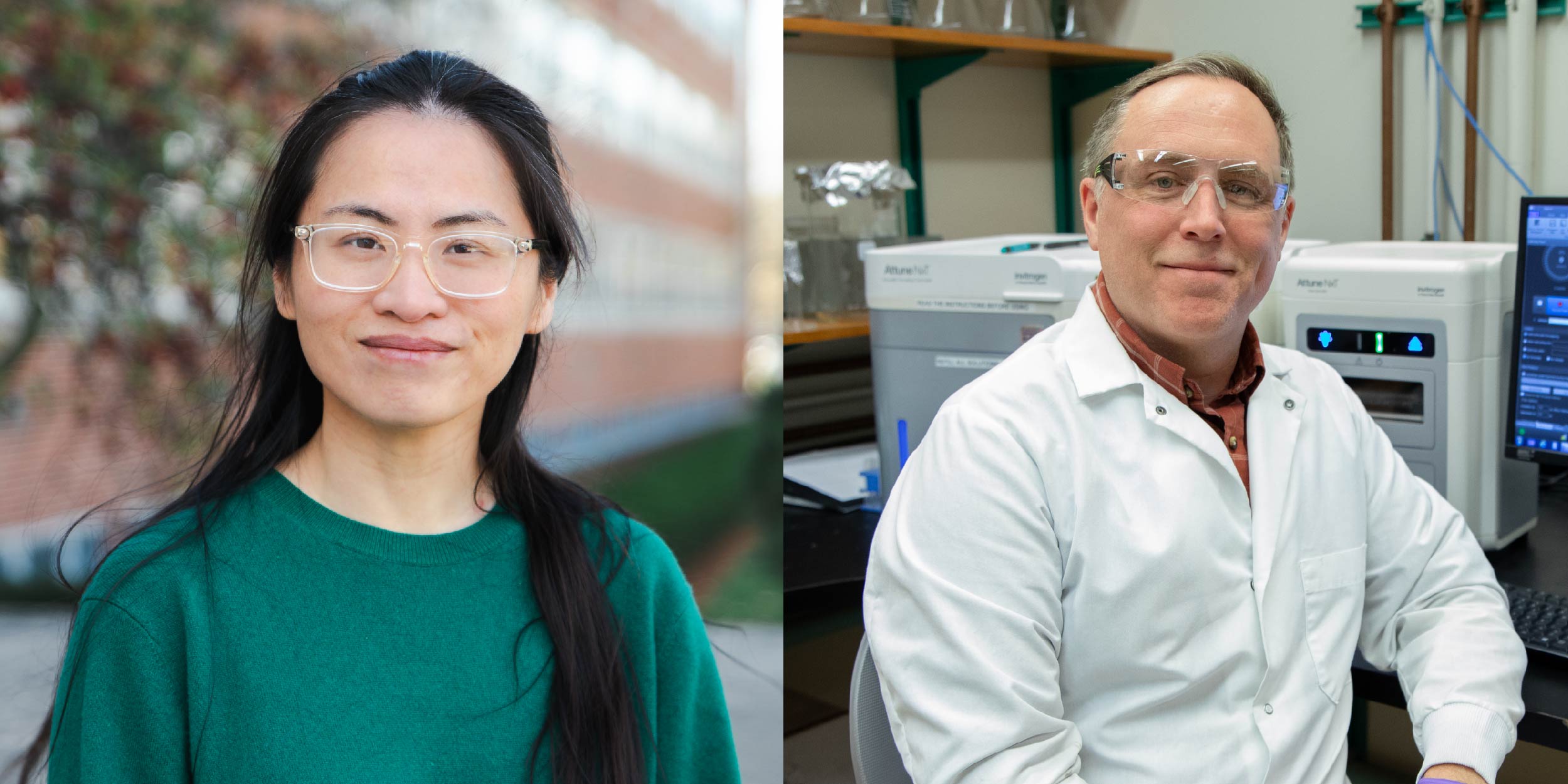Faculty Promotions in Biological Sciences for the 2023-24 Academic Year
07-25-2024

The Department of Biological Sciences is happy to celebrate our faculty promotions for the 2023-24 academic year.
Dr Qing Deng was promoted to full professor. Her research aims to enhance our understanding of neutrophil biology and develop targeted therapies for individuals suffering from debilitating diseases.
Deng's lab is uncovering new genes and signaling mechanisms that control the migration and activation of neutrophils, the body's powerhouse white blood cells. This research not only broadens our knowledge of neutrophil function but also highlights their role in diseases such as cancer, diabetes, ischemia-reperfusion injury, and neurodegeneration. These discoveries are directly applicable to human health, paving the way for revolutionary neutrophil-centric therapies. Such therapies have the potential to treat chronic or abnormal neutrophil activation and significantly improve patient care.
In collaboration with the Bao lab, the Deng lab is also pioneering the development of neutrophil products derived from induced pluripotent stem cells. This innovative approach holds promise for adoptive transfer therapy, with genetically engineered neutrophil products currently in the commercialization process to combat solid tumors. The team is committed to expanding the applications of these neutrophil products to address other major diseases.
Dr. Matt Olson was promoted to associate professor. His research goal is to better understand how CD4 + T helper cells drive intestinal inflammation by addressing these key questions:
- What signals drive the generation of pathogenic/inflammatory Th cells in the intestines?
- How do pathogenic/inflammatory T helper cells contribute to disease?
- Can we therapeutically target factors that drive the generation of pathogenic T helper cells or their functional byproducts to eliminate or reduce disease?
Olson’s laboratory uses a combination of cell and molecular biology approaches to examine signaling pathways associated with T helper cell differentiation. He also utilizes pre-clinical models of disease, and high throughput culturing and RNA/protein profiling techniques to identify disease mechanisms and novel mediators of inflammation.
About the Department of Biological Sciences at Purdue University
Purdue Biological Sciences is the largest department in the Life Sciences at Purdue University. We are dedicated to pioneering scientific discoveries and transformative education at the cutting edge of innovation. From molecules to cells, from tissues to organisms, from populations to ecosystems - we bring together multiple perspectives, integrating across biological scales to advance our understanding of life and tackle the world’s most pressing challenges. Learn more at bio.purdue.edu/.
Writer: Alisha Referda, areferda@purdue.edu